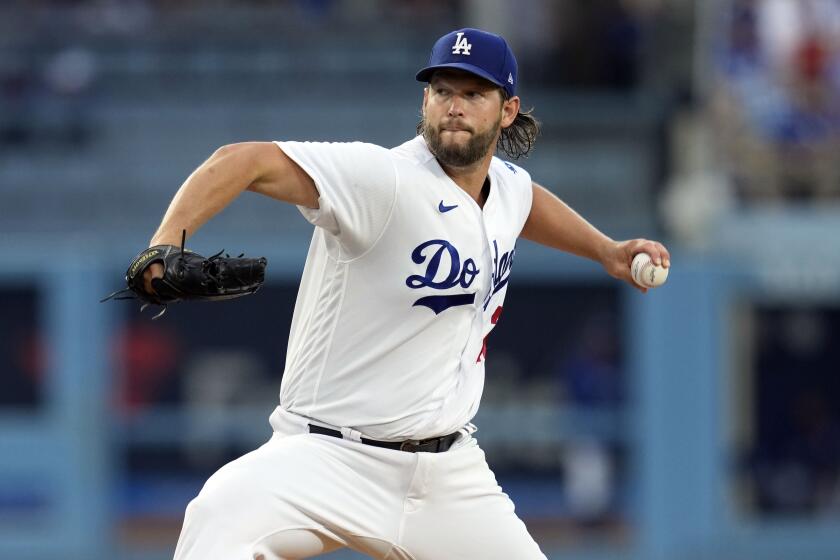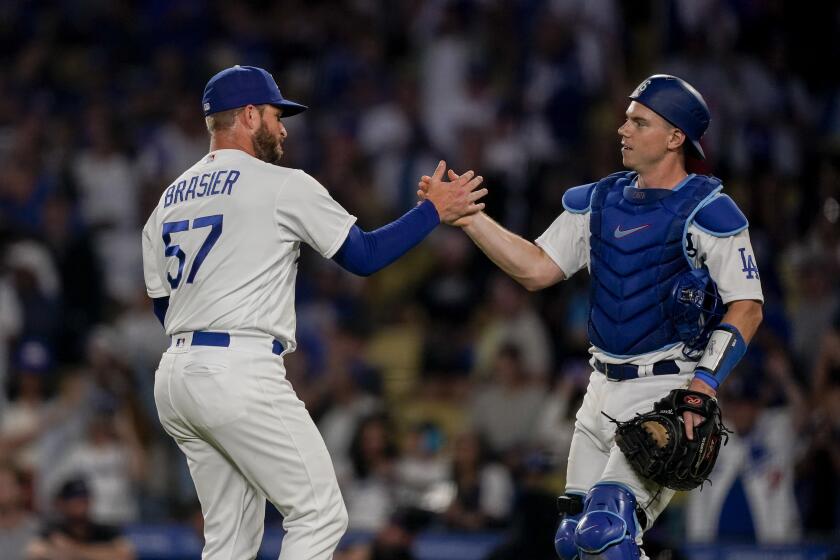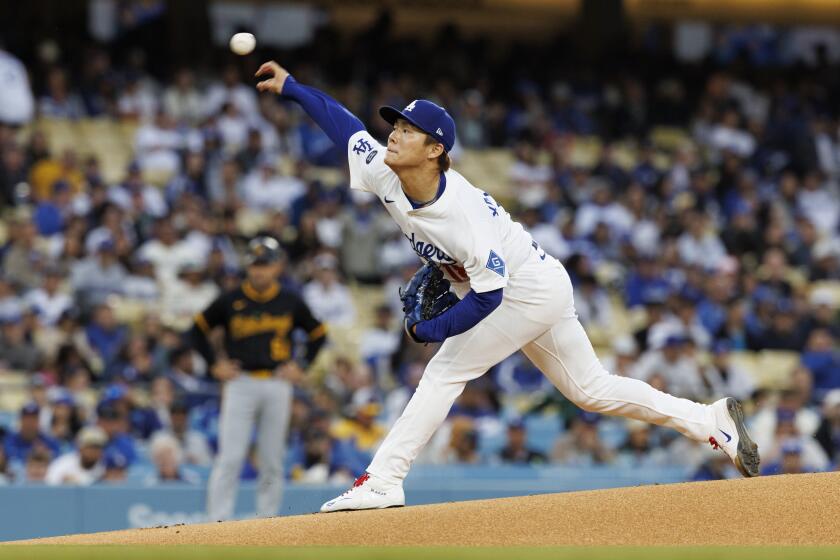Do the Dodgers have enough arms for the playoffs? The time to find out is now
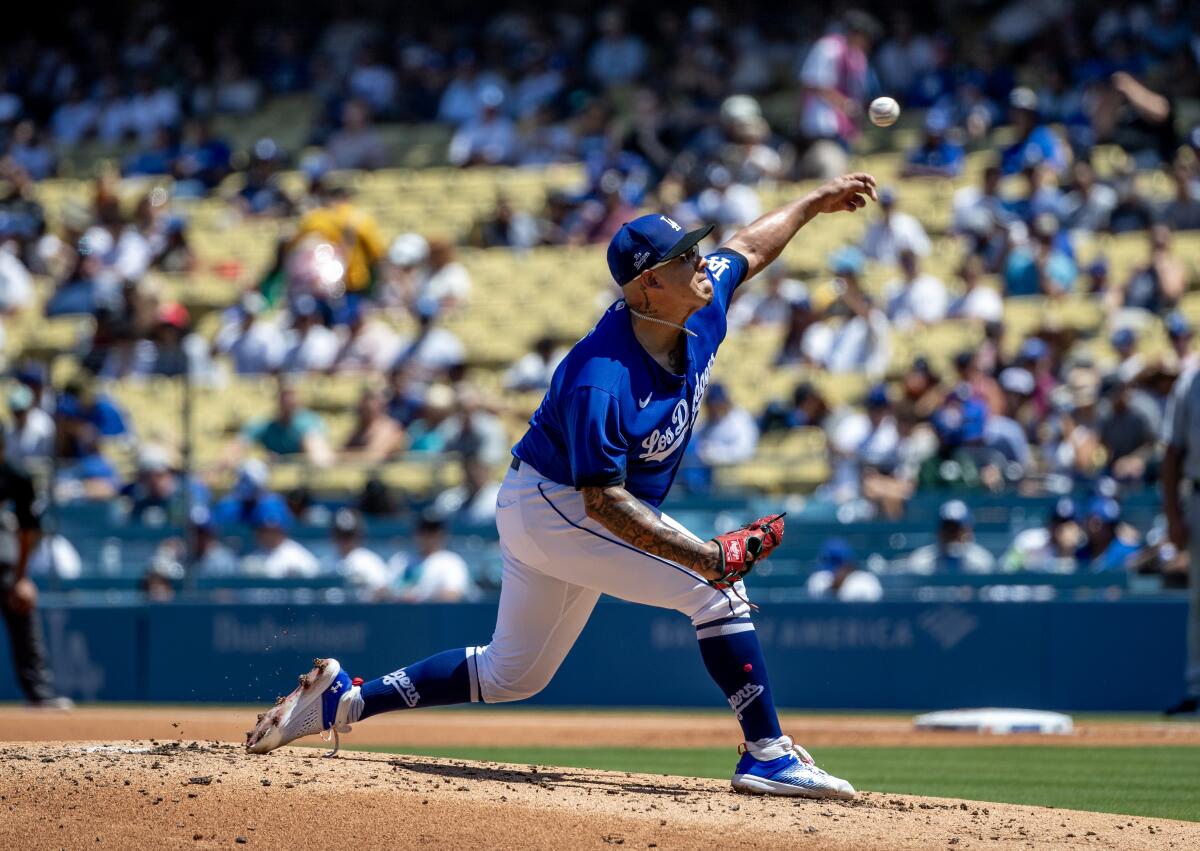
- Share via
Dave Roberts describes the current Dodgers as his favorite team he has managed.
“It’s just the closest-knit team that we’ve had,” Roberts said.
Ironically, this same team could present Roberts with his greatest managerial challenge to date.
The problem isn’t the regular season. The Dodgers are built for this part of the year, and they will reach the playoffs, their lead in the National League West remaining at 8 1/2 games after they extended their winning streak to eight games with an 8-3 victory over the Colorado Rockies on Sunday at Dodger Stadium.
If Clayton Kershaw stays healthy and pitches like he has during his career, the Dodgers are once again in the hunt for a World Series title.
The difficulties will present themselves in October, when Roberts will be tasked to win three playoff series with a hodgepodge pitching staff.
The Dodgers don’t have a clearly defined No. 1 starter, as Julio Urías’ performance has fluctuated dramatically in his walk year. Clayton Kershaw just returned from an unspecified shoulder injury and his health can’t be taken for granted.
With Andrew Friedman failing to acquire an established starter at the trade deadline, there might not be another pitcher the Dodgers trust enough to face opposing hitters beyond the first time through the order.
Come the playoffs, the Dodgers will likely resort to deploying relievers as starters to register early outs and using starters as long relievers to cover multiple innings.
Roberts will have to make pitching change after pitching change and cross his fingers that one of the five or six pitchers he uses on a particular night doesn’t implode.
The scheme isn’t new. The difference is that it was often a choice in the past. Now it’s a necessity.
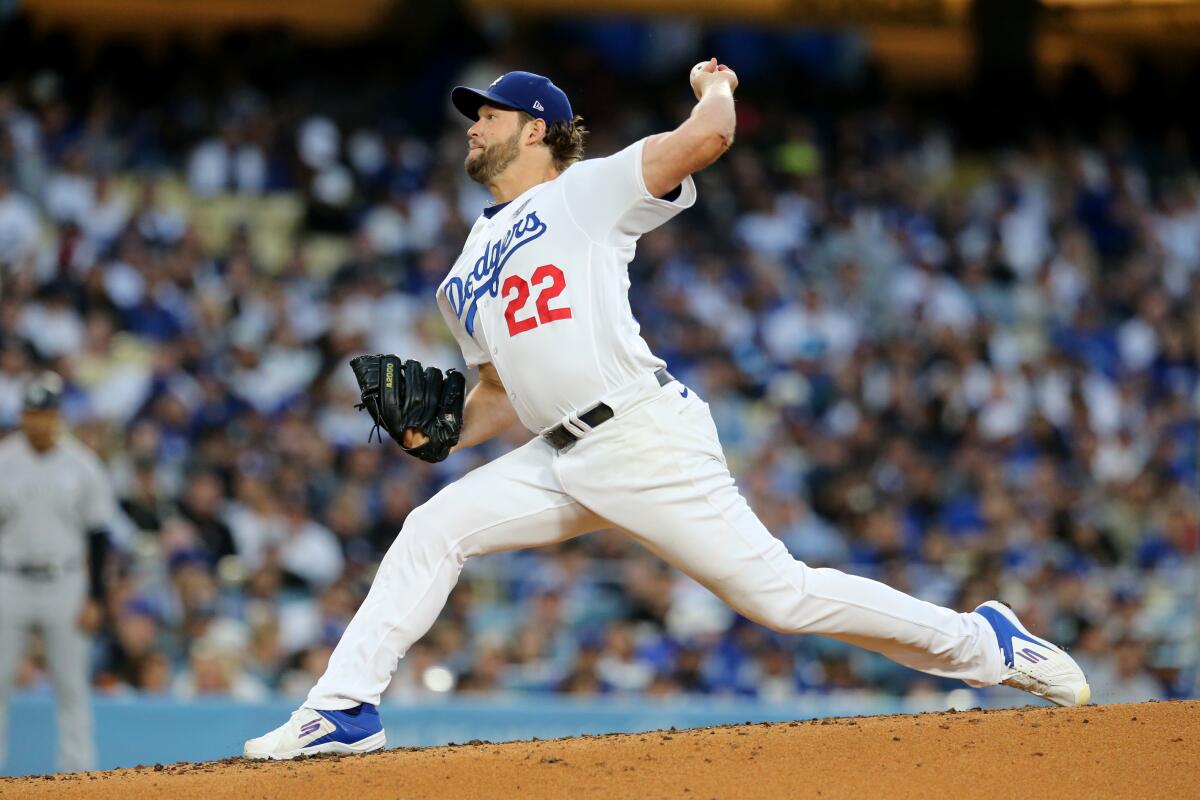
Less than two months remains until the start of the playoffs. The Dodgers have between now and then to figure out how to line up their pitchers.
“You look at each game in a series and there’s 27 outs you have to get,” Roberts said. “I think the talks that we’re slowly starting to have is how best to take them down.”
Rather than simplify their lives by signing a frontline pitcher in the winter, or trading for one in the summer, the Dodgers will once again count on unorthodox game plans to compensate for their shortage of high-end pitching talent. The drawback of the approach was particularly evident last year, when an 111-win Dodgers team was upset by the San Diego Padres in the NL Division Series.
Count on too many relievers and something is bound to go wrong. Count on them to cover too many innings and disaster is bound to strike. Count on a manager to make too many decisions and one of them is bound to backfire.
Urías and Kershaw are the only locks to be in the postseason rotation, provided they are healthy. However, each of them lasted only five innings in their NLDS starts last year.
The schedule for the best-of-five NLDS this year will include three days off, ensuring the Dodgers won’t have to use more than three starters in the round. Even then, whom will the Dodgers lean on after Urias and Kershaw?
Bobby Miller? Lance Lynn? Tony Gonsolin?
Could the Dodgers call on one of them to pitch two or three innings in relief after a reliever pitches the first inning?
With Urías and Kershaw unable to be counted on to pitch late into games and with no obvious No. 3 starter, the Dodgers have to decide how many long relievers to carry.
Miller, Lynn and Gonsolin could be part of the mix. So could Ryan Yarbrough, Michael Grove and Emmet Sheehan. Walker Buehler and Shelby Miller could be part of the plans if they recover in time from major injuries.
Ryan Brasier has emerged as a key reliever for the Dodgers since joining midseason after several years with Boston, where he had roller-coaster ride.
Evan Phillips has solidified his place as the team’s closer, but who knows what the rest of the bullpen will look like, especially after Joe Kelly was placed on the injured list Sunday with elbow inflammation.
Their pitching might be even more unreliable than it was last year, but Roberts thinks the Dodgers are in a better place in at least one regard.
“I don’t think last year we played with urgency,” Roberts said. “Before we knew it, we were heading home. I think that this group is very aware of that. I think there will be a different tone going in.”
Maybe Roberts is right. Maybe the Dodgers can be more productive offensively than they were last year in the NLDS, when they scored just seven runs over the final three games. Still, they will have to keep the other team from scoring. They have seven weeks to plan how.
More to Read
Are you a true-blue fan?
Get our Dodgers Dugout newsletter for insights, news and much more.
You may occasionally receive promotional content from the Los Angeles Times.

